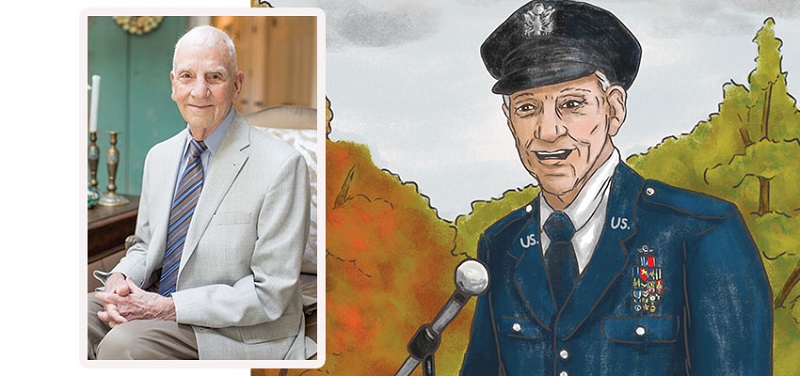Adjusted Expectation
Sign up for a six month free
trial of The Stand Magazine!
In his book “The Church in Babylon: Heeding the Call to Be Light in Darkness,” Erwin Lutzer, Pastor Emeritus of The Moody Church in Chicago, IL, provided a clarion call for the church to make a mid-course correction contrary to the culture of the twenty-first century. Pastor Lutzer confronted the notion that many American Christ-followers inaccurately view our nation as if it is now the Promised Land when in actuality it is much more akin to Babylon as described in the Hebrew Scriptures. He then points to Daniel and the accounts of Daniel’s friends in the prophetic text that bears his name as examples for contemporary believers to follow as we strive towards Christ-centered biblical faithfulness in this modern-day Babylon.
In Daniel 1:1-8, the door is opened to us to peer into biblical history and there we find a treasure trove of valuable insight. First, verse 1 gives us a temporal context in which to set the events that follow. We learn that Nebuchadnezzar besieged Jerusalem in the “third year of the reign of Jehoiakim king of Judah.” Jerusalem, the capital city of Judah, was home to both the temple and the royal palace. It was the seat of spiritual and political life in Judah.
Verses 2-3 reveal that Nebuchadnezzar carried off some of the temple vessels as well as some of the “sons of Israel” as spoils of war to Babylon. Daniel and his friends Hananiah, Mishael, and Azariah were “among” the “sons of Judah” who’d been taken captive and exiled to Babylon (vv. 3-6). Nebuchadnezzar was so impressed by them that he indoctrinated them via a full-on Babylonian education with the end goal of them serving as his royal advisors (v. 5).
Verse 7 shows the lengths to which Nebuchadnezzar goes to strip these young men of their identities, their heritage, and their culture by replacing their given Hebrew names with Babylonian names. Daniel, he called Belteshazzar. Hananiah he changed to Shadrach. Mishael was changed to Meshach and Azariah was changed to Abednego (v. 7). This was a dehumanizing effort to compel them to forget all that existed prior to Babylonian conquest and exile and completely embrace their lives and roles as Babylonians.
There is an additional insight, however, tucked away for us in verses 3-4 in the first chapter of the book of Daniel. It says,
Then the king ordered Ashpenaz, the chief of his officials, to bring in some of the sons of Israel, including some of the royal family and of the nobles, youths in whom was no defect, who were good-looking, showing intelligence in every branch of wisdom, endowed with understanding and discerning knowledge, and who had ability for serving in the king's court; and [he ordered him] to teach them the literature and language of the Chaldeans (emphasis added).
Daniel and his friends were “youths.” Some translations specifically refer to them as “children” in verse 4. The reason for this is that the Hebrew word translated into English in verse 4 is “yeled.” The Hebrew word yeled indicates that Daniel, Hananiah, Mishael, and Azariah were most likely young boys to teenagers. They were somewhere between the ages of twelve and fifteen years old. Also, considering the way they were often listed it seems Daniel may have very well been the oldest of the four.
So, the Scriptures reveal to us that Daniel and his friends were “youths,” transported hundreds of miles away from their homes, parentless. Yet, they were described as “showing intelligence” in “every branch of wisdom.” They were “endowed with understanding” and “discerning knowledge” (or “understanding science”). They were also described as having the “ability” or competency to serve “in the king’s court.” Oh, and before I forget, they were also said to be “good-looking” (so they probably looked like me… okay I’m kidding).
How often do we associate the words “intelligence,” “wisdom,” “understanding” and competence to advise kings with youth today? Could it be, we have bought into an unbiblical expectation of our children based on the prevalent presentations of youthfulness made to us by the world? It seems the Scriptures point us toward an adjusted expectation of our young people. Just because foolishness is present in young people in the world does not mean that is the bar we should set and/or expect from our young people.
When we read the remainder of chapter one in Daniel’s book as well as the chapters that follow we learn that these young men spent the majority of their lives in Babylon and in fact spent more time in Babylon than they ever did in Judah. They were yeled in chapter one, but that is the only chapter in the book where they could be described as boys. When we see them again in chapter three before Nebuchadnezzar’s fiery furnace they are grown men. When we see Daniel in chapter 6 in Darius’ lion’s den, he’d been in Babylon over 60 years (contrary to whatever artist renderings you may have seen depicting a lad in the lion’s den).
They lived the entirety of their adulthood and the bulk of their lifetimes in Babylon, yet Babylon never lived in them. We should likewise strive, as Meeke Addison often says, to “culture-proof” our children in our day. By God’s sovereign grace and divine providence, we live in the United States of America. Yet, we strive to never allow the wicked aspects of a rebellious culture in America to live inside of us. As the Apostle John wrote, we must not “love the world nor the things in the world” (1 John 2:15(a)). Living counter-culturally for the Christ-follower must become as natural to us as breathing. Our King is the one who called us to be peculiar.
But there is another consideration that must be made in light of the treasure revealed to us in Daniel 1:1-8. What type of investment did Daniel, Hananiah, Mishael, and Azariah’s parents make in them that the other parents seem not to have made? Daniel 1:6 says these four yeled were “among” the “sons of Judah” taken into exile by Nebuchadnezzar. They weren’t the only ones. Yet, it seems they were the only Jews who were present in chapter 3 who refused to faceplant in worship before Nebuchadnezzar’s golden statue.
The simple point that I hope to get across in this piece is that we shouldn’t passively allow the world’s experiences and commonalities to shape our expectations for our children. Timothy knew the LORD from his youth. Samuel served the LORD from his youth. Daniel, Hananiah, Mishael, and Azariah served the LORD as yeled. Our children can know and serve the LORD continuously from their youth on throughout their lifetimes. Similarly, we should also reject the “that’s good enough” or “that’s all they need” parental paradigm that’s common in Christendom in our country.
We can and must have Christ-following, peculiar children. Our children also can and must have Christ-following, peculiar parents. We must adjust our expectations. Adjusted expectations drive adjusted commitment.

Sign up for a free six-month trial of
The Stand Magazine!
Sign up for free to receive notable blogs delivered to your email weekly.


















